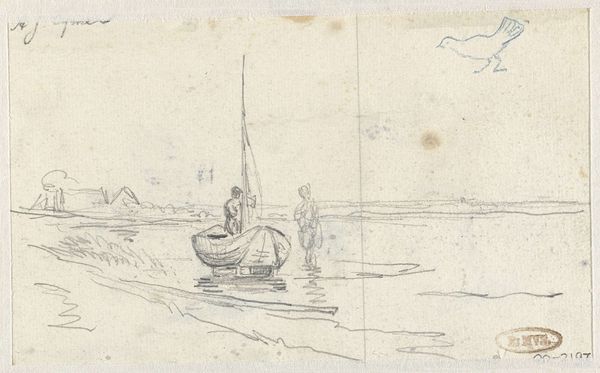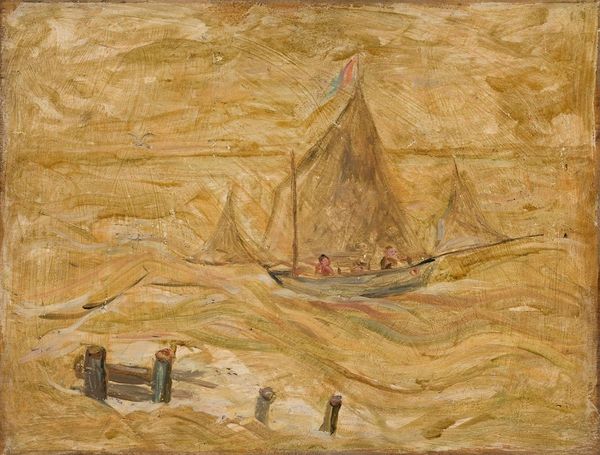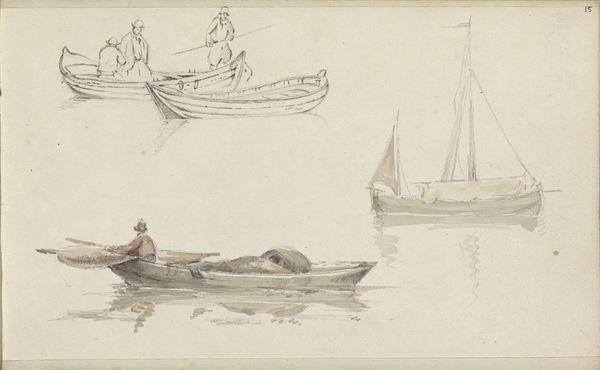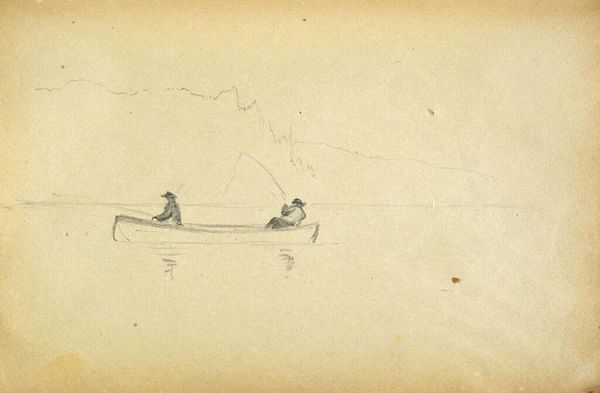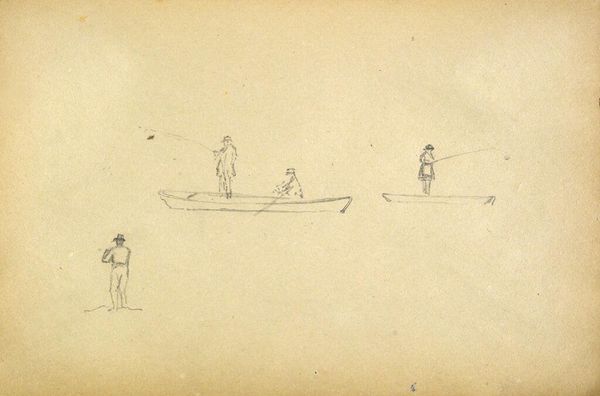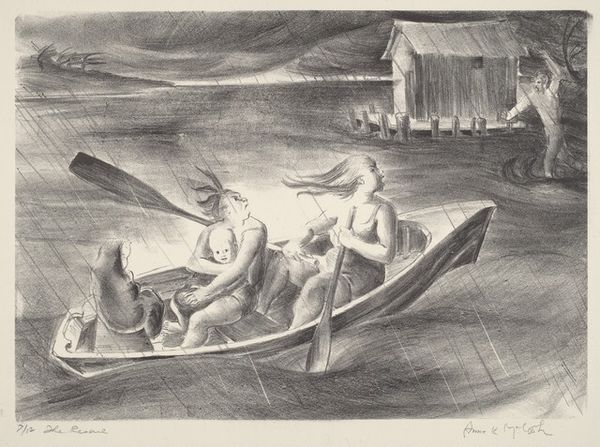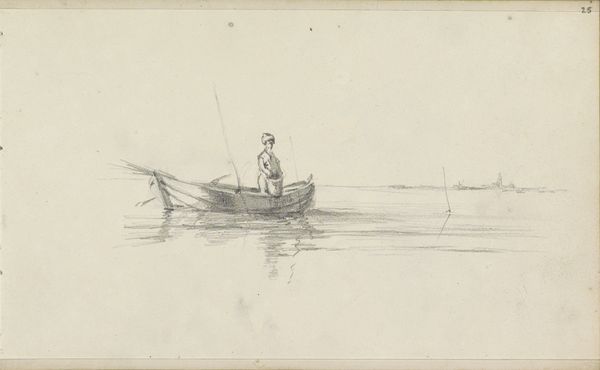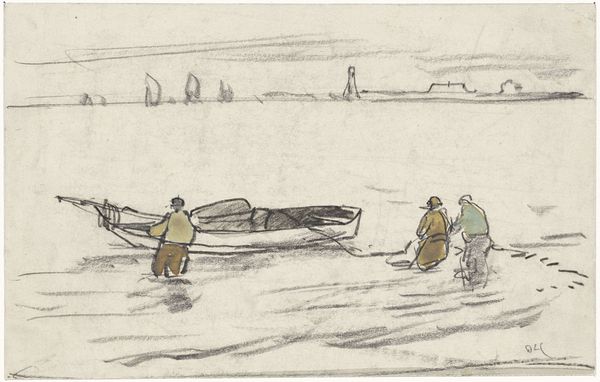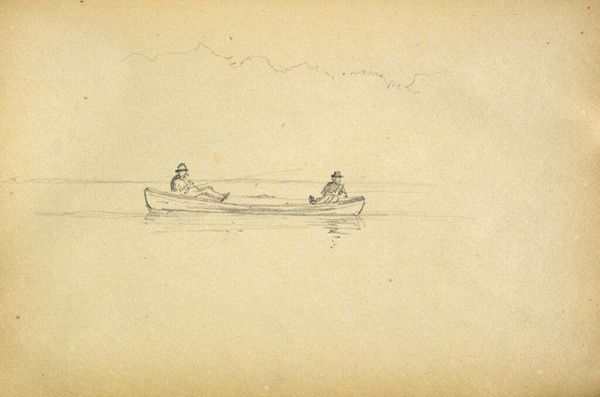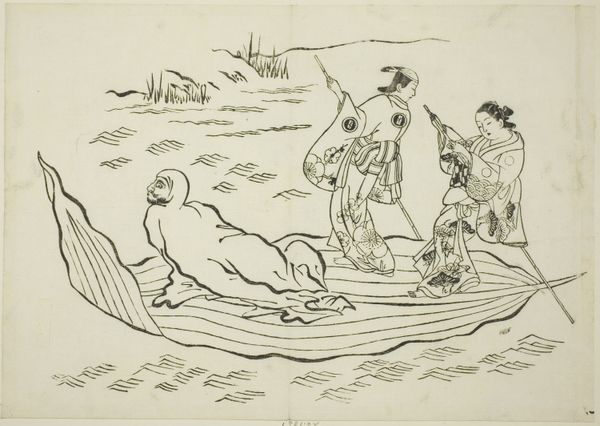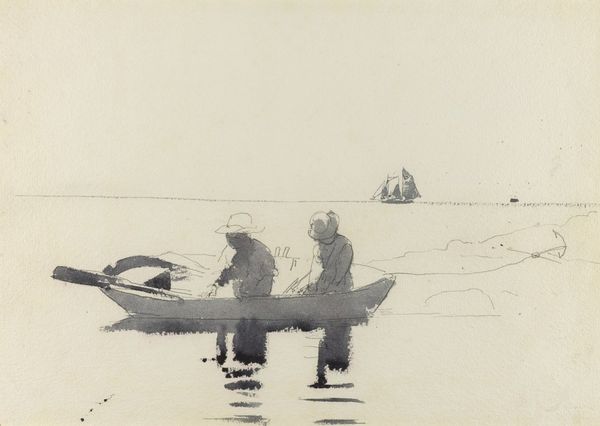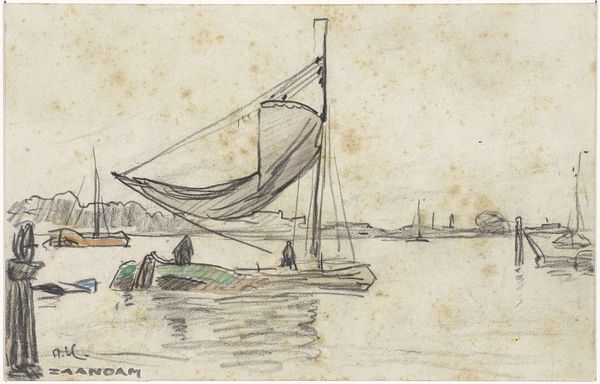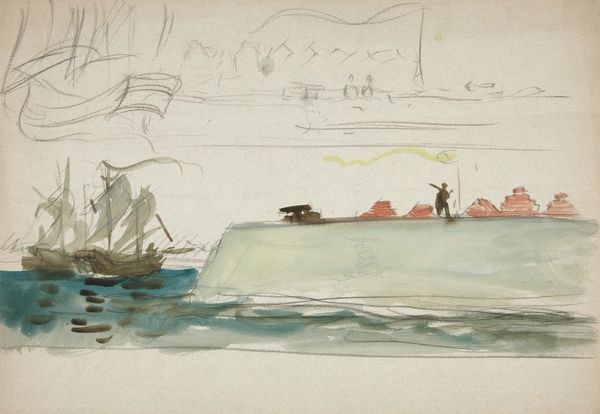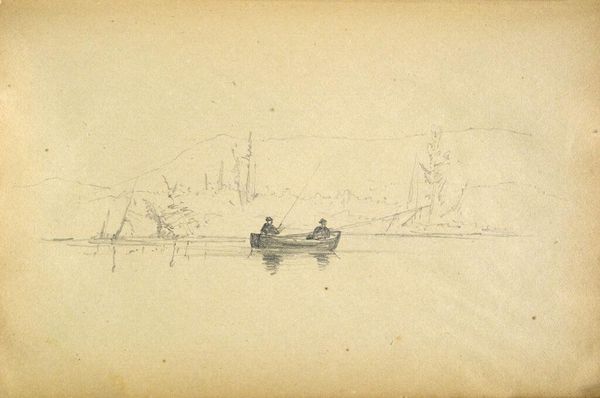
painting, oil-paint, impasto
#
painting
#
oil-paint
#
landscape
#
figuration
#
oil painting
#
impasto
#
genre-painting
Copyright: Public Domain: Artvee
Curator: At first glance, this oil painting evokes a dreamy, almost ethereal quality, doesn't it? Editor: Absolutely. There's a lightness to it, almost like a faded memory. I'm really drawn to the visible brushstrokes. You can see how the artist applied the paint with short, textured strokes, giving it a kind of raw, almost unfinished feel. What can you tell us about the piece? Curator: This is "Łódki," painted by Tadeusz Makowski in 1929. Makowski was a Polish artist known for his exploration of childhood and folk art, and we see that reflected here. These small boats with passengers carry a kind of simple, pure joy that goes back to older themes, stories, archetypes even. Editor: You can definitely feel the artist's hand in this work, a strong focus on the tactile quality of oil paint. Notice, too, how the colors are muted, mostly creams, pale blues and grays, emphasizing a somber but relaxed tone in how everyday objects and situations take on cultural and economic implications, really bridging craft and “high” art practices. Curator: Precisely, that’s key to understanding his aesthetic. It's also tempting to ask, what do boats themselves signify in art and culture? The obvious: journeys, transitions, the passage of time... but also the subtle undercurrents, the things unseen that carry a people, even a culture forward. Editor: It’s the way that focus interacts with its place in a wider history of paintings about everyday life—a real question for art historians! Makowski gives his own interpretation by putting visible effort into production that calls out labor, resources, and technique, yet renders the outcome a calm moment of transport. Curator: And how this simple scene becomes a carrier for complex meaning… It underscores how art continually cycles through symbols and experiences, renewing their resonance through the eyes of different artists. Editor: It really gets you thinking about artmaking as a process steeped in social contexts. This encounter makes you appreciate Makowski’s work in an even more profound light.
Comments
No comments
Be the first to comment and join the conversation on the ultimate creative platform.
